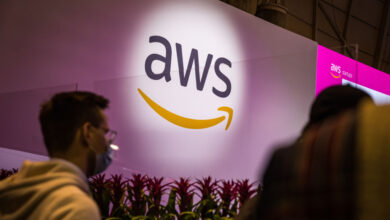How Edelman Is Ramping up Investment in Generative AI

Public relations giant Edelman is doubling down on its investments in generative artificial intelligence.
The PR firm, which employs about 6,000 people, is building out its own technology structure to improve its services to big brands, which include Dove, Taco Bell, and eBay.
To do so, Edelman recently promoted Brian Buchwald to global chair of product and AI to oversee the firm’s AI investments. Buchwald joined Edelman in 2023 and was previously the global head of product, trust data, and technology at the firm. He also previously worked at Talkwaker and Weber Shandwick.
Edelman plans to grow its investment in data and technology by over 100% between the fiscal years of 2024 and 2025. The firm’s centralized AI team will grow by 6X during the same time period, Buchwald said. He declined to say how much Edelman spends on data and technology or the size of the current AI team.
A core part of Edelman’s AI investments is a product called Trust Stream that uses machine learning algorithms to crunch data for PR clients that track metrics like how much consumers trust a brand compared to competitors, and the trustworthiness of news and social media content. The tool also has a forecasting component that estimates a company’s future trustworthiness. Previously, this tool used small language models and now uses generative AI and large language models, Buchwald said. He said that the addition of generative AI has improved Trust Stream’s accuracy so far. Using generative AI has increased the tool’s ability to predict future trustworthiness with 97% accuracy, he said.
The tech can also analyze how specific media stories impact companies. For example, a story in The New York Times may have a larger reputational impact on a pharmaceutical brand compared to a one-off post on social media or Glassdoor.
Edelman also wants to build generative AI into the first-party data tools it offers brands and third-party licensing deals with data firms, he said. Using third-party data from big tech platforms like OpenAI, Google, and Adobe is particularly important because of the large investments tech companies are putting into AI. Edelman’s data science team can then train these models to fit Edelman’s needs, he said. For example, Edelman can use the data to analyze the buying preferences of someone based on an Instagram comment.
In addition to the data itself, Edelman is also plugging generative AI into tools that brands use to manage data, such as data lakes and cloud computing.
“We’re investing in expensive processing power that allows us to churn through all this data and define insights and drive next best actions for our clients,” Buchwald said.
Buchwald said Edelman benefits from not being owned by a large ad holding group. Its competitors, like Interpublic Group’s Weber Shadwick and Omnicom-owned FleishmanHillard, often struggle to compete for budgets from other agencies within holding companies, he said.
Jay Pattisall, VP and principal analyst at Forrester, gave a different perspective, citing PR as one of the major growth areas for holding companies. For example, IPG-owned Golin reported double-digit organic growth during the first quarter of 2024, while the growth of IPG’s specialized digital agencies like R/GA and Huge underperformed.
“They have been driving some of the rather cherished profitability for them,” he said. “Their growth is in the single digits so any growth is important growth for the holding companies.”
More broadly, holding companies have made significant investments into generative AI for content creation that compete with Edelman. WPP, for example, will invest $318 million a year into AI, and Publicis plans to invest $300 million into AI over the next three years.



